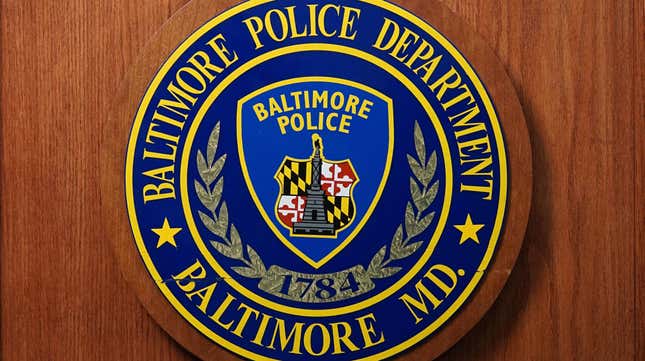
Why don’t superheroes go to city council meetings?
When Superman is desperately trying to prevent Lex Luthor from disintegrating the entire south side of Gotham, he never seems to wonder how Lex got funding for a nuclear-powered laser gun. Batman should spend more time poring through grant applications to see who gave Mr. Freeze the money to build a skyscraper-sized Sno-Cone machine. We hold these so-called “heroes” in such high regard, but if they brushed up on their research skills, maybe they could prevent some of these tragedies instead of having to resort to manhole cover-throwing fistfights that cost taxpayers millions in sewage fees and lost revenue.
For instance, if just one of the Avengers had taken the day off to convince the city of Baltimore that they don’t need three privately financed surveillance planes hovering over the city and tracking residents, perhaps they could have thwarted the unknown-but-definitely-nefarious plans the shadow organization has for Baltimore residents.
On Wednesday, Baltimore officials approved a deal between the Baltimore Police Department and Persistent Surveillance Systems (which sounds like a supervillain shell company) that will allow the Ohio-based company to conduct around-the-clock surveillance with three spy planes equipped with high-resolution cameras. Despite formal objections filed by the ACLU and the Legal Defense Fund, the panel voted 3-2 to approve the plan.
The city had previously refused to make the contracts public or even comment on the privacy issues, evaluation or methodology used in the project, according to the Baltimore Sun. It turns out that the program is being funded by a billionaire philanthropist couple from Texas and will be evaluated by an independent researcher who will be paid by Abell Foundation, another charitable organization that just happens to be privately run.
Guys, I’m sure it will be fine.
Baltimore Business Journal reports:
The newly approved agreement launches a six-month pilot project allowing BPD to use photos captured by the planes from 8,000 to 10,000 feet above the city for investigations of homicides, shootings, armed robberies and carjackings. The cost of the half-year program is $3.7 million — above the originally proposed $2.2 million — and is being funded by Texas philanthropists Laura and John Arnold.
The planes cover 32 square miles of the city, and the company will collect the images and send the police department briefings with the images for any ongoing investigations. Police have previously stressed that the planes will not be used for real-time surveillance but rather investigations of crimes that have already happened. Any data not used for evidence packages sent to police will be destroyed after 45 days under the agreement.
Police Commissioner Michael Harrison told the board he had previously been “skeptical” of the idea, due to how Persistent Surveillance Systems CEO Ross McNutt and his supporters had marketed its potential to the public, including “unsubstantiated claims... made as to their ability to cut murders by a third.” But he said supporters and the company, working with police, came up with an agreement with “safeguards” for public privacy and independent reviewing and auditing.
The decision was decried by civil liberties advocates, citizens and activists who all asked the same question:
Why is Persistent Surveillance Systems obsessed with spying on Baltimore?
In 2016, Bloomberg News reported that the data-mining company had been conducting surveillance missions over the city from a “small Cessna airplane equipped with a sophisticated array of cameras” that had circled Baltimore for months. The photos were so detailed that every person appeared as a single pixel on the aerial photographs. Remember the mysterious police-related death of Freddie Gray that sparked uprisings and unrest throughout Baltimore?
Persistent Surveillance Systems had photos.
Of course, they didn’t tell anyone at the time. Even worse, neither the city nor Persistent Surveillance had provided residents with any public notice that their every move was being recorded.
In case you were wondering, this footage will be used by the same police department whose officers kept spare toy guns just in case they needed to plant one on a dead body. The data will be available to the cops who infiltrated a kids’ camp, planted evidence on suspected drug dealers and used social media to spy on protesters.
Nothing to worry about here.
“Residents have already raised concerns about previous aerial surveillance activities by BPD, including potential privacy violations due to the nature of round-the-clock surveillance and racial discrimination in the deployment of the planes,” Legal Defense Fund president Sherrilyn Ifill wrote in a letter to Baltimore’s Mayor and Police Commissioner (pdf). “City officials must understand that using mass surveillance methods to attempt to solve crimes will likely perpetuate bias by disproportionately surveilling communities of color even though crimes occur in all neighborhoods in the city.”
Some of the members of the Baltimore Board of Estimates had asked for a delay during the COVID-19 crisis to allow the public to weigh in but the vote went ahead as scheduled. A few community activists, religious leaders and representatives from LDF actually showed up at the meeting to protest the decision and try to change city leaders’ minds, to no avail.
While there is no evidence that the previous “trial run” prevented crime or had any impact on the city’s murder rate, the private billionaires agreed to spend millions spying on Baltimore residents. I’m not saying they have something up their sleeves but giving away money to fund a fruitless effort seems contrary to the billionaire ethos unless…
OK...they have something up their sleeves.
“Using invisible planes to solve crimes?” said Diana Prince, a random woman who was at the meeting. “That definitely won’t work.”

